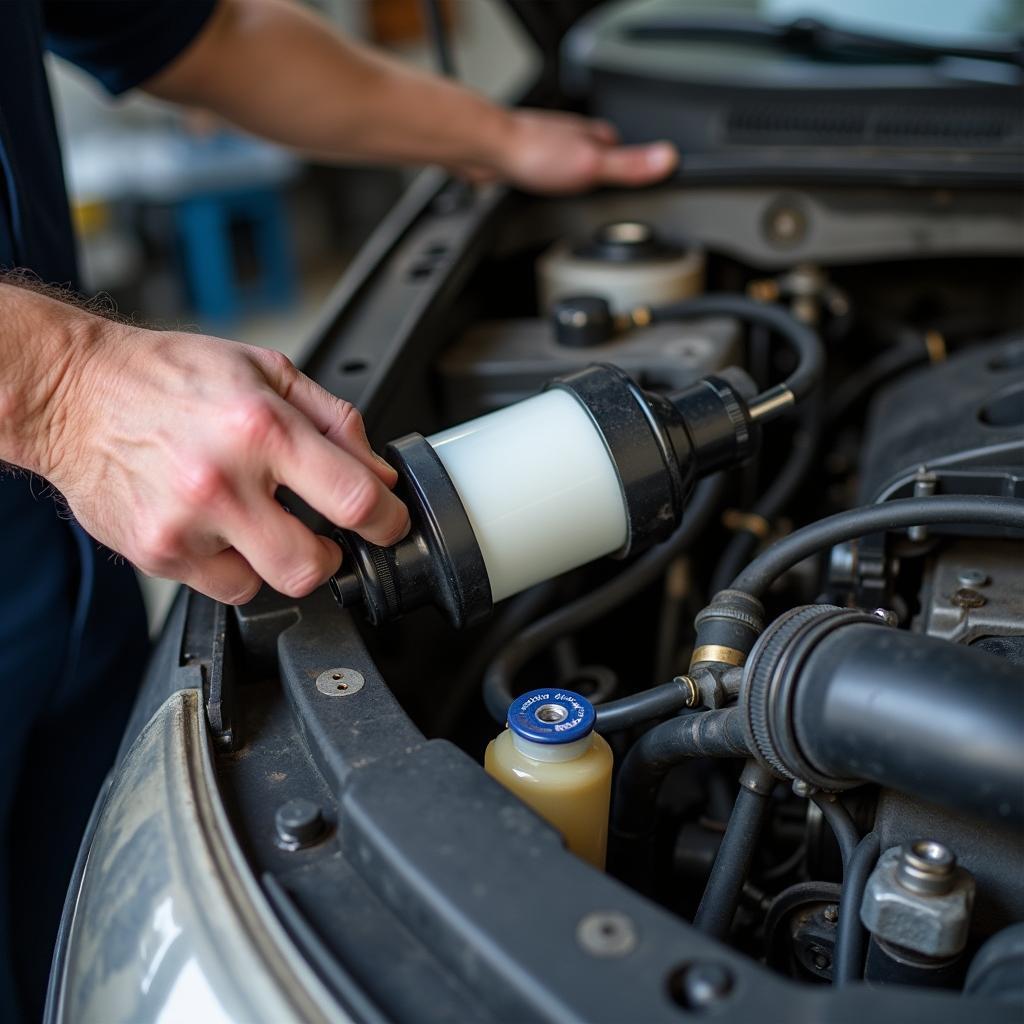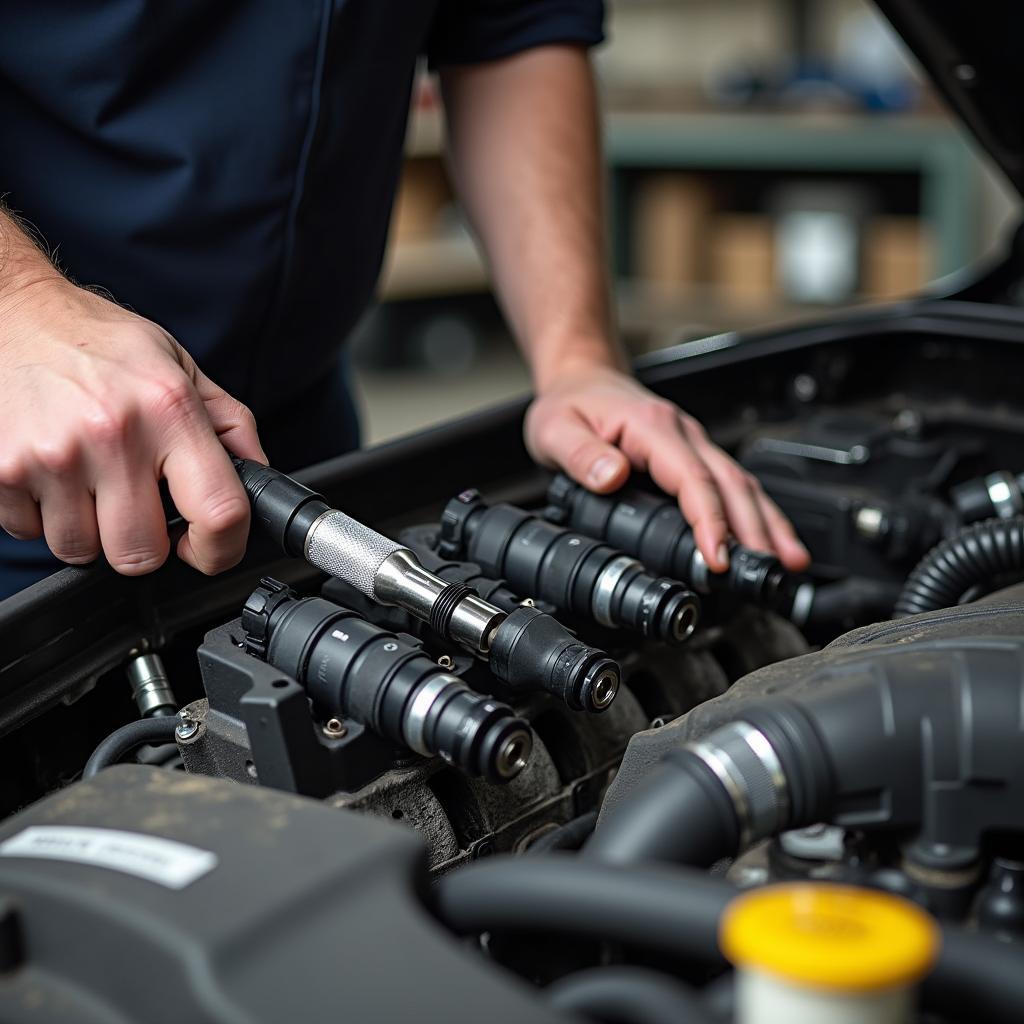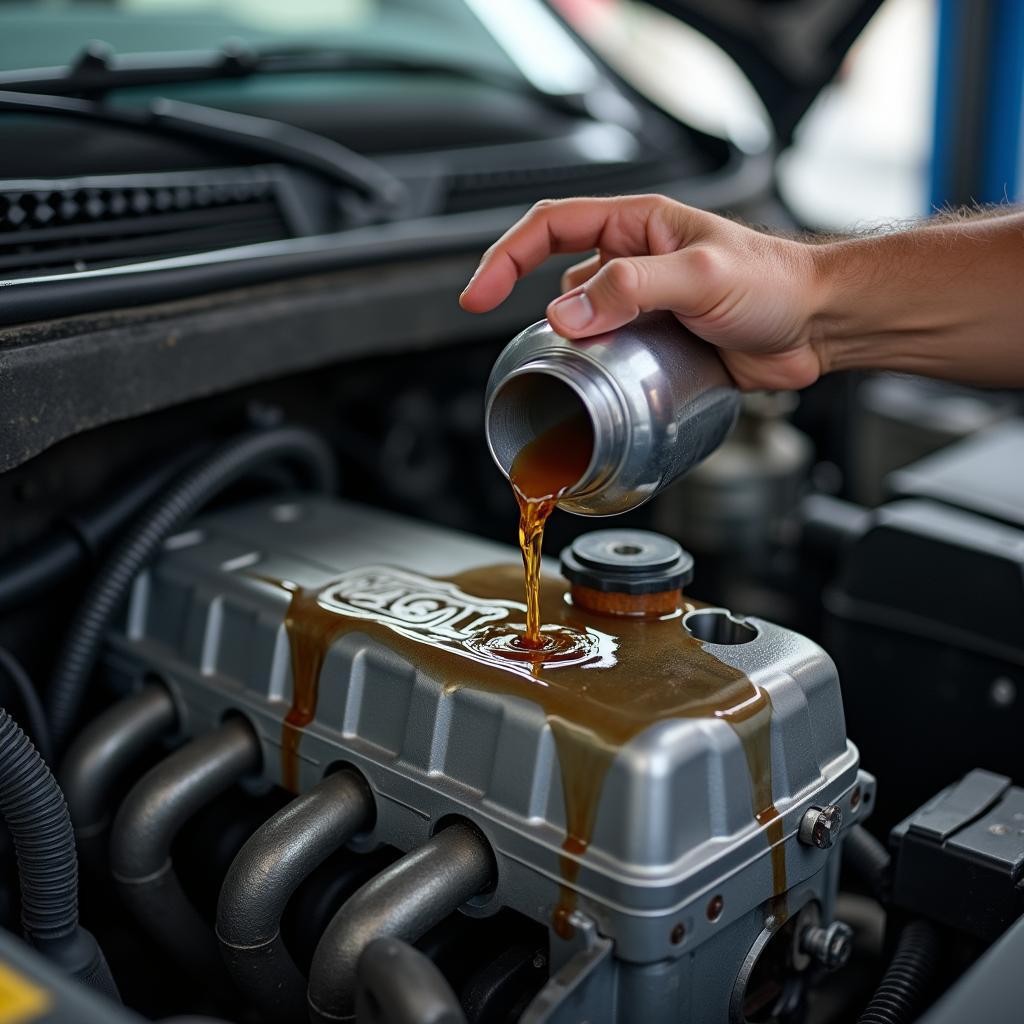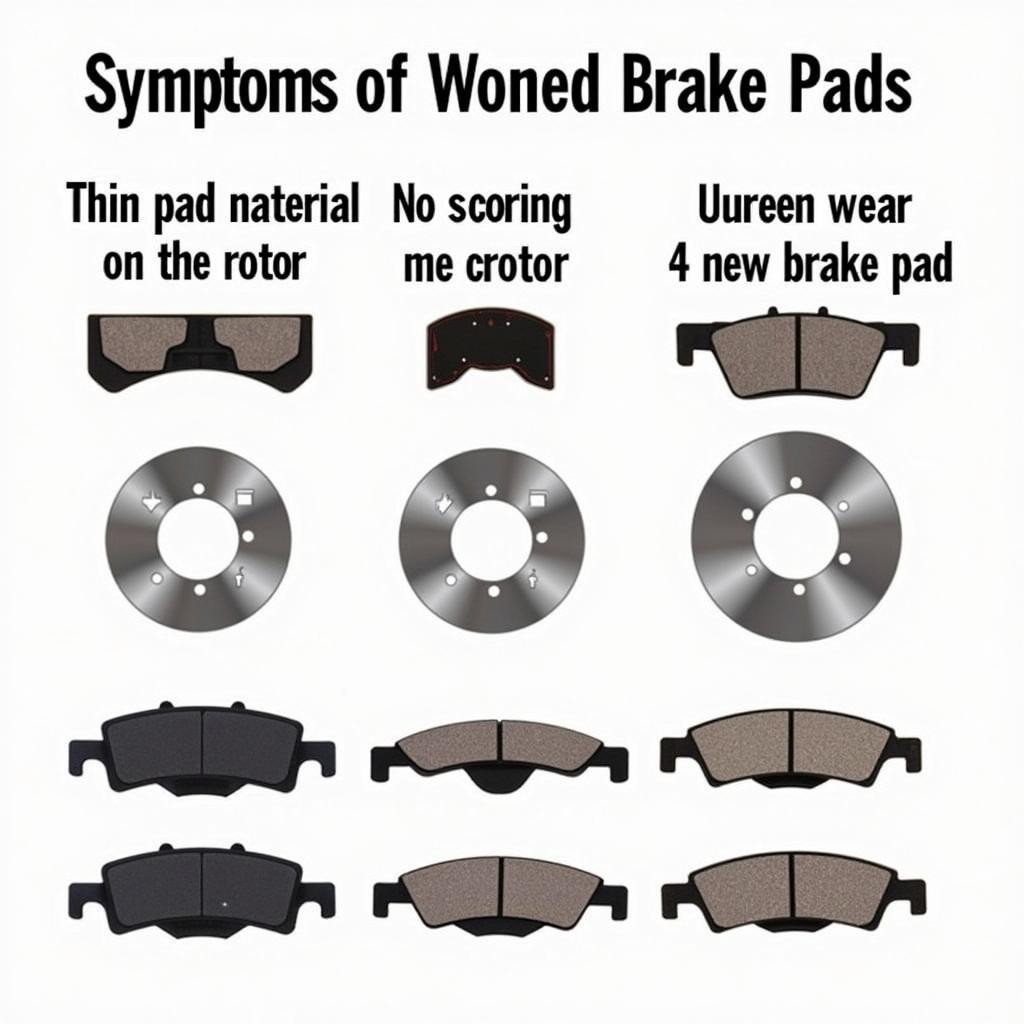Diesel engines, known for their durability and fuel efficiency, are becoming increasingly popular in vehicles. While diesel engines are renowned for their resilience, they require specific maintenance routines to maintain their optimal performance. This guide will equip you with the essential knowledge of Basic Diesel Car Maintenance, covering fundamental aspects for both vehicle owners and mechanics.
Understanding the Basics of Diesel Engines
Before delving into the specifics of maintenance, let’s gain a basic understanding of how diesel engines work. Unlike gasoline engines, diesel engines rely on compression ignition, where fuel ignites when compressed to a high temperature. This process eliminates the need for spark plugs, making diesel engines inherently more durable and fuel-efficient.
However, this unique characteristic also necessitates specific maintenance considerations, particularly concerning fuel systems and engine components. Let’s explore these crucial aspects in detail.
Fuel System Maintenance: The Heart of Diesel Performance
The fuel system is the lifeblood of a diesel engine. It delivers clean, filtered fuel under high pressure to ensure optimal combustion. This section will guide you through essential fuel system maintenance tasks, ensuring your diesel engine runs smoothly for years to come.
1. Fuel Filter Replacement
The fuel filter plays a crucial role in trapping dirt, debris, and water that can damage the delicate fuel injectors.
“Changing the fuel filter regularly is essential for maintaining fuel system cleanliness and ensuring smooth engine operation.” – John Smith, Certified Diesel Mechanic
 Replacing a diesel fuel filter
Replacing a diesel fuel filter
A clogged filter can restrict fuel flow, causing engine performance issues like rough idling, hesitation, and even stalling. As a general rule, it’s recommended to change the fuel filter every 15,000 miles or annually, whichever comes first. However, it’s vital to consult your vehicle’s owner’s manual for specific recommendations.
2. Fuel Injector Cleaning
Fuel injectors are responsible for accurately injecting fuel into the combustion chamber. Over time, deposits can build up on the injectors, causing them to clog or malfunction.
 Cleaning diesel fuel injectors
Cleaning diesel fuel injectors
Regular cleaning is crucial to prevent fuel injector problems. You can use fuel injector cleaner additives in your diesel fuel, or opt for a professional cleaning service every 30,000 miles.
3. Fuel System Diagnostics
To ensure the integrity of your fuel system, it’s important to perform regular diagnostics.
These diagnostics can be performed using a specialized diagnostic tool that can read codes from the engine control unit (ECU) and identify any fuel system malfunctions.
Engine Maintenance: Keeping Your Diesel Engine Running Strong
Diesel engines require specific maintenance routines to preserve their longevity and efficiency. Here are essential engine maintenance practices for maintaining your diesel engine:
1. Oil Change and Filter Replacement
Regular oil changes are essential for lubricating engine components and preventing wear and tear. Diesel engines typically have longer oil change intervals compared to gasoline engines, but it’s crucial to follow the manufacturer’s recommendations.
“Using the correct oil type and changing it on schedule is vital for maintaining engine health.” – Maria Garcia, Certified Diesel Technician
 Changing the oil in a diesel engine
Changing the oil in a diesel engine
It’s also essential to replace the oil filter during each oil change. The oil filter removes contaminants from the oil, maintaining its effectiveness.
2. Engine Coolant Check and Flush
Coolant plays a crucial role in regulating engine temperature and preventing overheating.
Check the coolant level regularly and ensure it’s within the recommended range. Additionally, flush the coolant system every 2-3 years, or according to manufacturer guidelines, to remove corrosion and contaminants.
3. Air Filter Replacement
The air filter prevents dust and debris from entering the engine, safeguarding its performance and longevity.
 Replacing an air filter in a diesel engine
Replacing an air filter in a diesel engine
Replacing a clogged air filter improves engine breathing, allowing for smoother operation and fuel efficiency. Consult your owner’s manual for recommended replacement intervals, typically every 15,000-30,000 miles.
Turbocharger Maintenance: Maintaining Boost Efficiency
Turbochargers are a common feature in diesel engines, offering enhanced power and fuel efficiency.
Here are essential tips for maintaining your turbocharger:
1. Regular Inspection
Inspect the turbocharger regularly for signs of wear and tear, such as oil leaks, loose connections, or excessive noise.
2. Oil Change Intervals
Maintaining appropriate oil change intervals is crucial for turbocharger lubrication.
3. Avoid High RPMs
Avoid prolonged driving at high RPMs, as excessive heat can damage the turbocharger.
Conclusion: Your Guide to Basic Diesel Car Maintenance
Understanding basic diesel car maintenance is essential for both vehicle owners and mechanics. By following these recommended practices, you can ensure your diesel engine runs smoothly, efficiently, and reliably for years to come.
For further assistance or specialized maintenance needs, contact our team of experienced diesel technicians at Autotippro.
AutoTipPro Contact:
Phone: +1 (641) 206-8880
Office: 500 N St Mary’s St, San Antonio, TX 78205, United States
Frequently Asked Questions (FAQ):
-
How often should I change the fuel filter in my diesel car?
It is recommended to change the fuel filter every 15,000 miles or annually, whichever comes first. However, always consult your vehicle’s owner’s manual for specific recommendations.
-
What are the signs of a clogged diesel fuel filter?
Signs of a clogged filter include rough idling, hesitation, stalling, decreased engine power, and increased fuel consumption.
-
How can I tell if my diesel fuel injectors are clogged?
Common signs of clogged injectors include rough idling, misfiring, black smoke from the exhaust, and decreased fuel economy.
-
What are the benefits of using a diesel engine oil?
Diesel engine oil is specifically formulated to handle the higher temperatures and pressures generated by diesel engines, providing optimal lubrication and protection.
-
Why is regular air filter replacement important for diesel engines?
A clean air filter allows optimal airflow to the engine, resulting in better performance, fuel efficiency, and reduced emissions.
-
How do I know if my turbocharger needs maintenance?
Signs of a faulty turbocharger include oil leaks, whistling or screeching noises, decreased engine power, and excessive smoke from the exhaust.






Leave a Reply